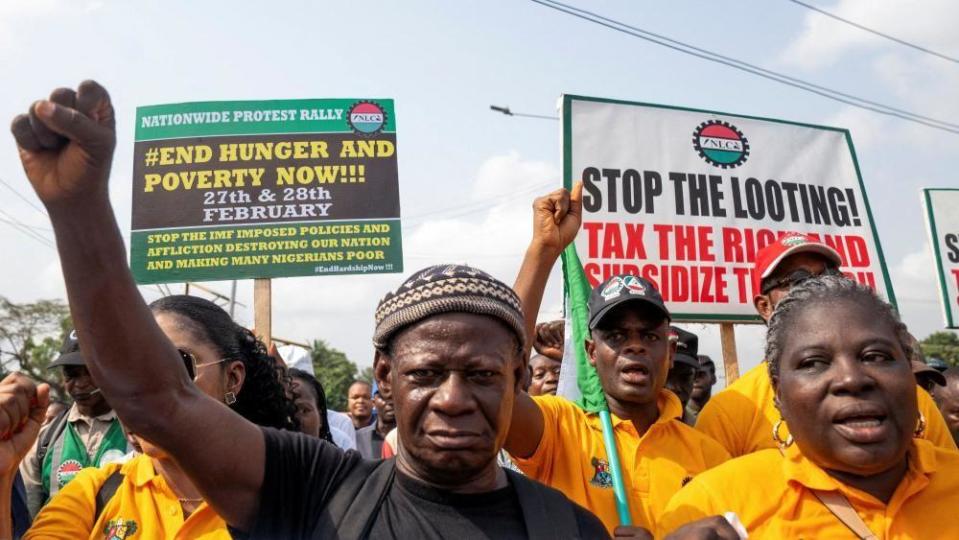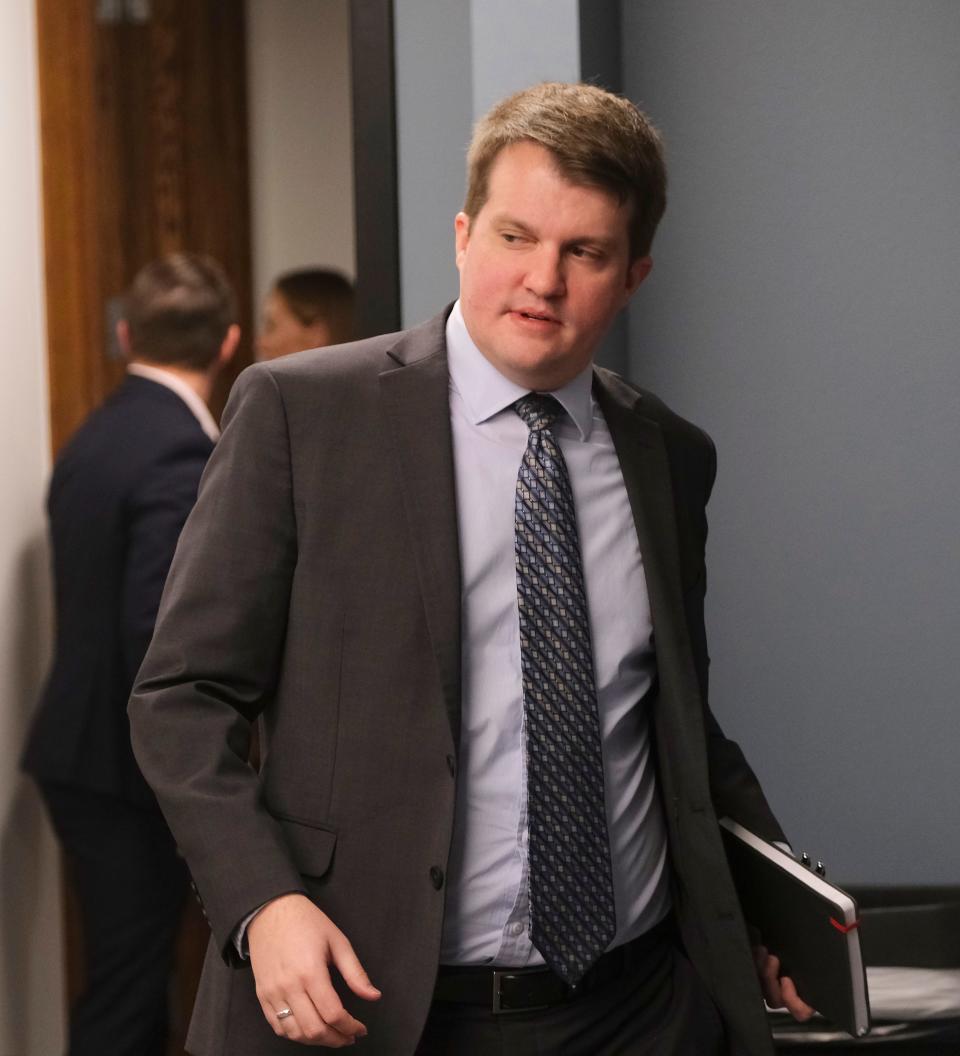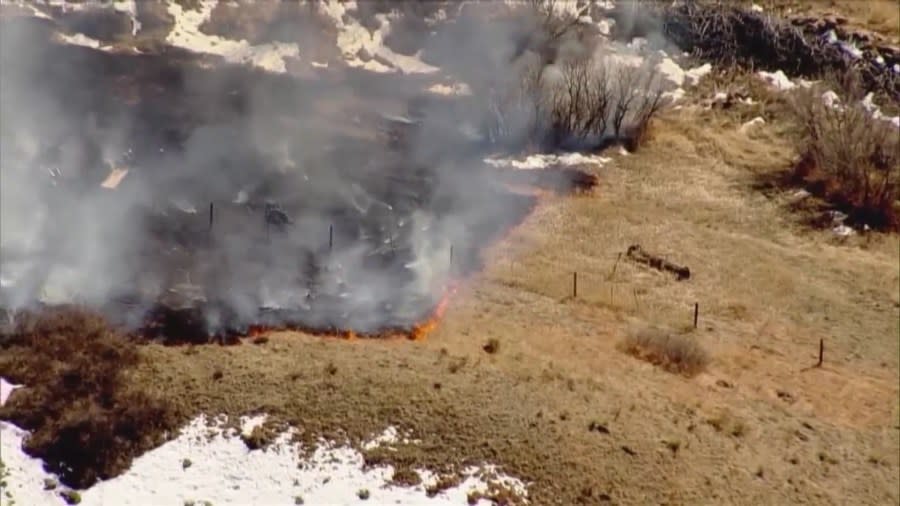Nigerians love their football but it is no longer the main topic of conversation for many.
On the first anniversary of the Bola Tinubu presidency, Abubakar Sheka, who sells bread on the streets of the northern city of Kano, says that his customers’ primary focus is now on what they can afford to buy.
“Football talk is only sweet when the tummy is full but at the moment a lot of Nigerians are finding it difficult to feed, which makes people always talk about the economy when they meet,” the 36-year-old tells the BBC above the noise of the morning traffic.
He has also noticed that fewer people are buying bread as the price has more than doubled since last May, reflecting the increase in the cost of flour, cutting off many families from one of the country’s basic staples.
Inflation, coupled with the falling value of the currency, the naira, has been the major theme for many of the past 12 months.
Though Nigeria has been hit by the same harsh economic winds as much of the rest of the world, some of what has happened is a direct result of the policies of President Tinubu, sworn in to office exactly a year ago.
The new president, 71 at the time, had won a bruising election with 37% of the vote – a result that was then disputed in court. His task was to bring the country back together.
He also faced a challenging financial situation, along with concerns about kidnapping and corruption.
Amid the pomp and lofty sentiments on inauguration day, the president let slip a major announcement.
“Fuel subsidy is gone,” he told Nigerians without giving a timetable for when the policy would be in place, or any measures that might cushion the inevitable blow.
The decades-old subsidy was costing the nation huge sums of money which Mr Tinubu argued would be better spent elsewhere.
“President Bola Tinubu’s inauguration speech began at around 10:00 and by 11:00 there are already fuel queues across Nigeria,” public affairs analyst Hashim Abubakar says.
“That statement sent prices of fuel and other items skyrocketing immediately.”
Annual inflation was already at an 18-year high of 22% and, partly as a result of getting rid of the fuel subsidy, it has risen to nearly 34%. Wages have not kept up.
The government has also ended the policy of pegging the value of the naira to the US dollar, allowing it to dramatically depreciate. Whereas 10,000 naira would have bought $22 last May, it will now only purchase $6.80.
This has made anything that is imported more expensive.
And all this has pushed more people into poverty.
Abubakar Ameer hands out food to those in need in Kano. He said that over the past year the number of people coming for help has more than doubled.
“We had to reduce the ration we normally give to others so that everyone can get something to eat,” he tells the BBC.
The government has given cash transfers amounting to $54 (£42) over three months to the very poorest families, but this has not helped everyone.
Mr Tinubu’s ministers are aware of the hardships that many are now experiencing.
Last week, Minister of Economic Planning Atiku Bagudu apologised “for the pains that [the policies] may occasion”, but, he added, “they are necessary”.
He characterised the measures as part of an overdue economic restructuring which would result in long-term stability.
The hugely expensive fuel subsidy and the over-valued naira was damaging the economy, it is argued.
“This administration has implemented significant economic reforms aimed at stabilising our economy and fostering sustainable growth,” an official in the Tinubu administration, George Akume, said when presenting the government’s one-year progress report.

The reforms were also aimed at boosting the confidence of foreign investors. The amount of investment money flowing into the country reached a peak just over a decade ago and has been relatively low since then.
“I believe things are beginning to pick up in terms of foreign investment in the country due to the government’s economic policies,” says Victor Aluyi, senior vice-president of financial firm Sankore.
“The improvements are not massive but there are improvements nonetheless compared to when things were really low in the past years.”
One of the other big challenges facing the president in his first year in power was security, with violent attacks and abductions plaguing parts of the country under his predecessor.
When it came to kidnapping, the north-west of the country was particularly badly hit. But from a peak at the beginning of last year up to March, the number of incidents of abductions fell in the region, according to Acled, which monitors conflict and violence.
Nevertheless, two high-profile mass abductions in March and another one last week in different parts of the country have shown that more needs to be done to ensure people’s safety.
The government has defended its record.
Defence Minister Mohammed Badaru recently said that security forces had killed over 9,300 “bandits” and insurgents while 7,000 had been arrested in the past year.
As for the battle against corruption, the president has come in for some praise.
“So far, the Tinubu-led administration, has not been quiet over the issue and has displayed the political will to confront the hydra-headed monster,” says Kola Adeyemi chairman of NGO Anti-Corruption Awareness.
The suspension in January of Humanitarian Affairs Minister Betta Edu over the alleged diversion of public money was seen as a bold move. An investigation is under way and the minister has denied any wrongdoing.
A former top official from the Economic and Financial Crimes Commission, speaking to the BBC on condition of anonymity, says that the president needs to do more despite good early signs.
“Corruption has been a huge problem for decades so it will be unfair to score him based on a year in office – a lot needs to be done to wipe it out.”
In all areas of policy, the administration will insist that more time is needed for the people to feel the benefits if its policies.
But for Mr Sheka the bread-seller, time is running out.
“If things don’t improve economically then I’ll either get something else alongside this to bring in more money or abandon bread-selling altogether and find something else to do as there are needs to take care of.”

Go to BBCAfrica.com for more news from the African continent.
Follow us on Twitter @BBCAfrica, on Facebook at BBC Africa or on Instagram at bbcafrica
BBC Africa podcasts
Signup bonus from





